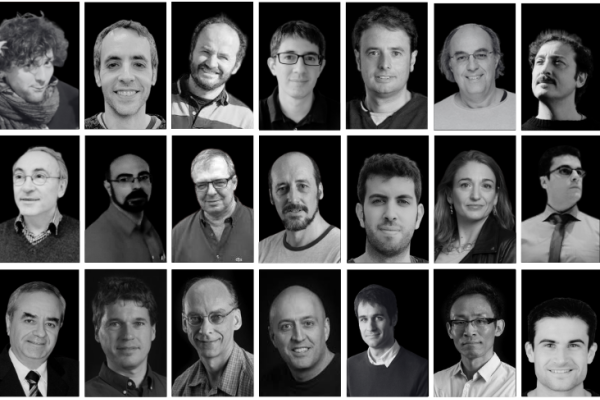The Spanish Ministry of Science and Innovation has published the resolution of the 2019 call, where the Institute of Cosmos Sciences is one of the six Maria de Maeztu Excellence Units that is accredited this year. This is the second time that our Institute receives this award, after the first one obtained in the 2014 competitive call.
This recognition distinguishes organizations with highly competitive research programs that are among the best in the world in their respective scientific areas. The evaluation and selection process is carried out independently by an international scientific committee of widely recognized researchers, which selects both Severo Ochoa centers and Maria de Maeztu units under the same requirements and criteria. The ICCUB is one of the 16 organizations (10 Severo Ochoa centers and 6 Maria de Maeztu units) that has been selected in this annual competitive call, among 55 candidates.
The accreditation provides funding to research organizations that demonstrate international scientific impact and leadership, and actively embrace knowledge transfer and collaboration with the business sector. Efforts on scientific publications access researcher’s effort with open access policies to scientific publications, outreach and knowledge diffusion are also recognized.
The Maria de Maeztu recognition is valid for four years, and provides 500.000€ each year. This strengthens research initiatives and helps attract and grow the research community.
As a Unit of Excellence, our Institute will join the SOMM Excellence Alliance, which promotes Spanish Excellence in research and enhances its social impact at national and international levels.
The Institute of Cosmos Sciences
The Institute of Cosmos Sciences (ICCUB, http://icc.ub.edu) is a research institute of the University of Barcelona (UB). It is an interdisciplinary center dedicated to fundamental research in the fields of cosmology, astrophysics, and particle physics. In addition, the institute has a strong technology program through its participation in international collaborations in observational astronomy and experimental particle physics. Created in 2006, the ICCUB brought together professors and researchers who worked in various departments at the UB Faculty of Physics. Our research lines are motivated by three main questions:
1. What are the origin and fate of the Universe?
2. What are the constituents of the Universe?
3. Why does the Universe have its current appearance?
The search for answers inspires the institute to define and review its research priorities towards scientific and technological advances. At the same time, the institute focuses on the new opportunities offered by technological developments related to its research areas, in order to revert them to society. Moreover, the ICCUB participates in many key international scientific consortia and projects, such as the Large Hadron Collider, the Gaia astrometric space mission, the MAGIC / CTA high-energy astrophysics telescopes, and the Virgo gravitational wave detector, among others.
The ICCUB is located on the north campus of the University of Barcelona, in the facilities of the Faculty of Physics, and at the Barcelona Science Park. It is also one of the four units that constitute the Institute for Space Studies of Catalonia (http://www.ieec.cat/es/).
Awarded Severo Ochoa Centers and Maria de Maeztu units
Eight Severo Ochoa centers have renewed their accreditation: Centro Nacional de Investigaciones Oncológicas (CNIO), Instituto de Ciencias Matemáticas (ICMAT), Instituto de Ciencias Fotónicas (ICFO), Instituto de Investigación Biomédica, Barcelona Graduate School of Economics (BGSE), Instituto de Astrofísica de Canarias (IAC), Centro de Investigación Agrigenómica (CRAG), and the Instituto de Ciencia de Materiales de Barcelona (ICMAB). In addition the Instituto Catalán de Investigación Química (ICIQ) recovers this distinction, which was first received in 2013.
Our Institute has recovered the Maria de Maeztu distinction, received first in 2014. Two units have renewed their distinction as units of excellence María de Maeztu: the Instituto de Ciencia Molecular of the Universidad de Valencia (ICMol), the Instituto de Tecnología y Ciencia Ambientales (ITCA), of the Universidad Autónoma de Barcelona. In addition, three institutions have received the distinction for the first time: the Instituto Imdea Energía, the Departamento de Agronomía de la Universidad de Córdoba, and the Instituto Catalán de Paleoncología Humana y Evolución Social.



